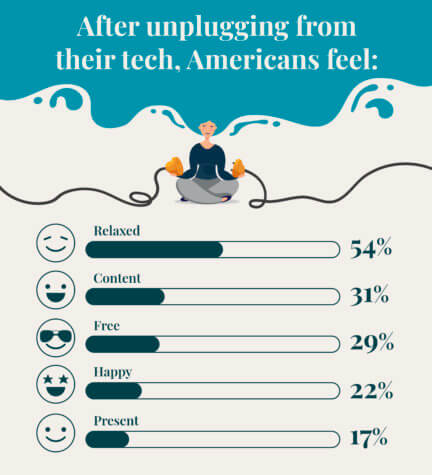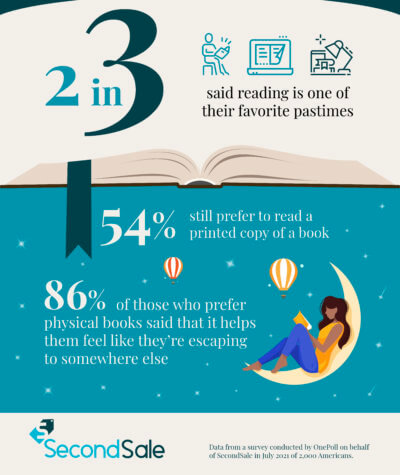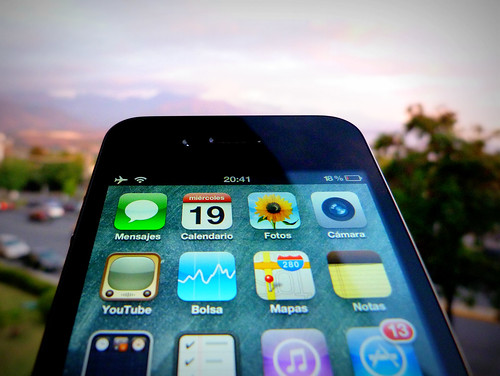Even tech lovers know to turn away from their devices after a while. A new survey of 2,000 Americans finds 56 percent of those who spend their entire day glued to a screen try to limit using their devices as much as possible at night.
On average, people unplug after five and a half hours of screen time per day. However, over half of respondents confess they use their devices more for leisure than for work (53%) and seven in 10 get carried away with playing games.
Tech stress
 Tech lovers shared that taking a break from their devices has helped them sleep better (59%) and feel more relaxed (48%). Respondents also say they feel content (31%) and free (29) when they do finally let go of their devices.
Tech lovers shared that taking a break from their devices has helped them sleep better (59%) and feel more relaxed (48%). Respondents also say they feel content (31%) and free (29) when they do finally let go of their devices.
Others limit themselves in other ways such as having no devices on the table during mealtime (34%) and keeping them away from their beds (31%). Those who have tech rules in their homes add they try to stay away from their phones and laptops before they go to sleep (87%).
However, nearly a quarter have difficulty staying away from their devices at night (24%), which is why the average person thinks two and a half hours is enough for them to satisfy their screen time fix before going to bed.
Conducted by OnePoll on behalf of SecondSale.com for National Book Lovers Day on Aug. 9, the survey also reveals that some of the activities most Americans look forward to after staring at a screen all day are spending time with their loved ones (64%), listening to music (62%), and cooking (56%).
Nearly half the poll say they have limited time for other activities because of how much time they spend using technology every day (47%). Moreover, 63 percent want to spend more time doing non-technology activities at the end of the day.
Rest your eyes in a good book
 While half of respondents already enjoy reading to help unwind from a long day, another 30 percent want to dedicate more time to reading. Two in three call reading is one of their favorite pastimes.
While half of respondents already enjoy reading to help unwind from a long day, another 30 percent want to dedicate more time to reading. Two in three call reading is one of their favorite pastimes.
“Reading remains a timeless hobby for people of all ages. Delving into another world and becoming engrossed in a good story relieves stress, offers an escape from our daily and sometimes mundane routines and allows creativity and imagination to flourish,” says SecondSale.com CEO and Founder, Glen Nothnagel, in a statement.
Despite ebooks and audiobooks becoming more popular, 54 percent still prefer to read a printed copy of a book. Most people who prefer printed books enjoy the feeling of holding a book (59%) and believe they’re easier to read (57%).
Thirty-seven percent also feel more attached to hard copies and most who prefer them think it helps them feel like they’re escaping to somewhere else (86%). No matter their preference, 79 percent of respondents admit that there are some parts of reading a physical book that an e-reader or audiobook cannot replace.
“The demand that we see for physical books of all genres is a testament to the power that reading a good old-fashioned book has,” says Nothnagel. “Holding a tangible book with pages to turn allows the reader to form an emotional connection and have an irreplaceable experience.”

